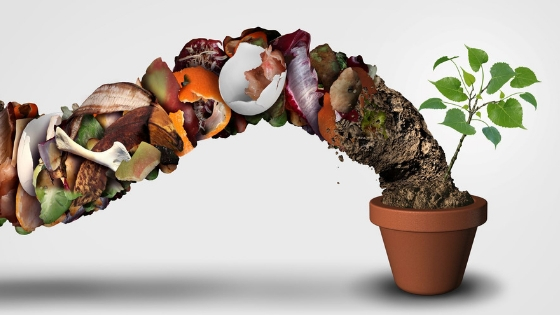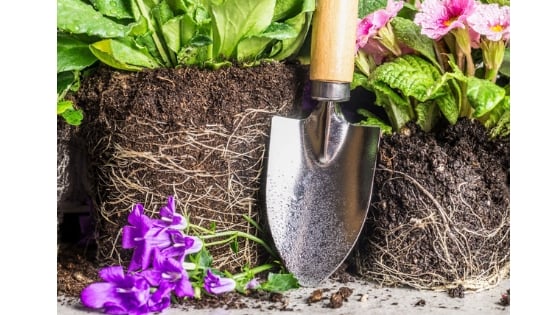
Can Plastic Be Composted In Australia? We Take A Look At Bottles, Coffee Cups And Plastic Bags 🌱
Can Plastic Be Composted In Australia? 🌱: in many recent blogs, we have covered the ongoing and worsening plastic waste crisis that is affecting Australia and pretty much the entire world. We have come round to the opinion that plastic usage has to be hugely reduced, if not stopped altogether
For example, it has been pointed out that some people require plastic drinking straws for medical needs, etc. In today’s blog, we will take a look at biodegradable plastic alternatives and ask: can plastic be composted in reality in Australia in 2021? Or, is it an oversold long term vision?
>Download Now: Free PDF Business Owners Guide To Commingled Recycling Bin Services
One thing is for sure – there is a lot of interest in biodegradable and compostable alternatives to conventional plastics.
We currently work with many cafes and other foodservice businesses who would really love to provide their customers with a more environmentally-friendly takeaway coffee cup option, as we do not think Aussies will relax enough to actually sit down with their morning coffee anytime soon!
With that said, check out our various recycling infographics for retail shops to help you save money and the environment at the same time.
Who is Waster?
Waster works with small and medium Aussie businesses to supply reliable, cost-effective and environmentally focused recycling and waste management services.
We always work hard to provide all available recycling options, even to our smallest customers. We always aim to help them boost their recycling and save money.

Find out more and check waste collection prices by hitting the blue buttons at the top or bottom of this page.
Can plastic be composted? We seek an alternative to the plastic nightmare
We hope, at this stage, that the nightmare caused by waste plastic (and the fact it lives pretty much forever) is well understood. With that said, we have argued in previous blogs that the damage it causes to wildlife (e.g., Great Pacific Garbage Patch) and the lack of any real or sustainable “recycling” option for the majority of global plastic waste means that reducing or banning its use is vital.
In this environment, the concept of compostable plastic alternatives sounds almost too good to be true, offering all the benefits of plastic (and there are lots) and none of the negatives.
Many have lots of questions on the classification and the difference between biodegradable and compostable plastic bags and containers – an accurate compostable plastic definition, for example. Are the items really what they are cracked up to be?

The dream scenario is that the compostable plastic film or even compostable plastic bottles would just break down into organic elements and nourish the soil like any food waste.
Of course, this vision is appealing. We just want to see how true it is in 2021.
The current view on “can plastic be composted?”
Put simply, the answer is no. We can only compost certain plastic alternatives. What’s more, the details vary by product and region. These products are referred to as bio-plastics.
There has been lots of confusion and mixed signals on what really is compostable – if there are actually facilities available. For example, the ABC covered how Darwin council banned the usage of single-use plastics on council land and encouraging compostable coffee cups. But, it was then pointed out that there are actually no commercial composting facilities in the entire Northern Territory!
This means everything ends up in landfill anyway! The “can plastic be composted?” question is a “yes… but” answer, it seems. The same goes question goes for bubble wrap recycling, which we think you should read to learn more about.
We, thus, end up with the worst outcome: businesses pay more for compostable coffee cups, only for them to end up in landfill anyway.
Plastic products that can be composted in Australia
Now, to reduce plastic’s adverse effects on the environment, some companies in Australia started producing alternatives.
The first example, we have Green Pack. They offer the “most comprehensive range of compostable, biodegradable and sustainably produced packaging in Australia, and the fastest possible delivery service.” Basically, wherever you are in Australia, Green Pack’s products can easily reach you.
They have a wide range of products which includes compostable coffee cups, pizza boxes, paper straws, bags, baking products and more.
Another example, Australia also has Hero Packaging. Like the first example, Hero Packaging provides better alternatives to single-use plastics. They make cute and “Earth-saving, compostable, zero-waste packaging products”. These include products such as compostable sticky tapes, mailers and bags.
Finally, we also have, of course, BioPak. They have a wide range of compostable products such as straws, plates, bowls, takeaway containers, coffee cups, cutlery, bags, beer rings, towels and more.
But even with all of that, we still have a major concern, which we will further talk about below.
The major problem: a lack of facilities available for commercial composting
Whilst the products often can be composted, the big issue is that there are no facilities available.
In 2017, The Sydney Morning Herald reported that most Biopak containers still end up in landfill (referring to the question “can plastic be composted?”):
“BioPak is one of several packaging companies to launch in Australia in the past 20 years, catering to environment-conscious consumers. They sell about 20 million bioplastic coffee cups and sugarcane-pulp fast-food trays a month.
“But while bioplastic can be recycled, no recycling facilities in Australia have the technology to do so. Unless the products make it to a composting facility, they are destined for landfill. And there are only nine commercial composting facilities that accept BioPak in Australia – none of them in Victoria.
“The company’s coffee cups, which are made of paper coated with bioplastic, can technically be recycled. But many commercial facilities refuse to do so because of fears they will contaminate the recycling stream – fears BioPak says are unfounded. Technology can be installed allowing plants to separate the plastic and paper, but it is expensive and few plants in Australia have it.
“Only seven councils in Victoria will recycle BioPak’s cups, none of them in inner Melbourne.”
Why is commercial composting required? how does compostable plastic work?
It would be great if these items (all compostable plastic food containers) could break down in your garden compost, but that is simply not the case.
“BioPak’s compostable products require high temperatures – 55 degrees plus – over weeks to break down, achievable only in specialised composting centres.”
Basically, we have very limited facilities available to break down plastic. There were no facilities in Tasmania, Victoria or the NT accepting these items – only one in WA. The major facility in Sydney metro was the SUEZ Kemps Creek facility.
Collecting bioplastics is also difficult
As only a few facilities actually accept the bioplastics, you need to arrange services with specific companies who run trucks to those facilities – and they may not cover the entire city.
Conclusion on “can plastic be composted in Australia?”
In simple terms, some bioplastic can be composted in specific composting facilities throughout Australia.
In many ways, we are putting the cart before the horse. Bioplastic cannot be recycled or composted in the vast majority of areas in Australia. For example, there were only 9 suitable facilities up and running in 2017.
We need to focus lots of effort and money on building facilities capable of this composting before we really roll out the cups etc.
But as always, the big question is, who is going to pay for it?
It should also be noted that composting facilities smell pretty bad, mainly due to decaying matter. It is not exactly easy to build these facilities in easily accessible locations. Would you want one next to your house? Reports state that the SUEZ Kemps Creek facility was fined by the EPA for the odours being emitted!
So, truly compostable plastic bottles and compostable plastic cups may still be a bit away. Check out our blog on whether drones can clean the ocean.
Check out our blog here arguing that we should not use compost made from red bin waste collections.
Leave a Reply Cancel reply

Product categories
Most Popular Posts
-
Commercial Waste Management Services: Reduce Waste Collection Costs! 🚍
-
Medical Waste Disposal: Everything You Need To Find Out In 2024! 💉
-
Rubbish Removal Sydney 2024: Better Bin Collections For Business ✅
-
Clinical Waste Disposal 2024: What To Know About Business Clinical Waste ⚕️
-
Secure Document Destruction 2024: All About Security Bins Shredding 🔒
-
Free Cardboard Recycling 2024: Can I Get Free Cardboard Collection? 📦
-
Confidential Paper Disposal Bins 2024: What You Need To Know About Shredding! 🔒
-
Recycling Bins Australia 2024: Recycling Can Boost Your Profits! ♲
-
Commercial Wheelie Bin Collection: What Businesses Need To Know In 2024 🗑️
-
Commingled Recycling 2024: Why Commingled Bin Is Key To Recycling 🍾













